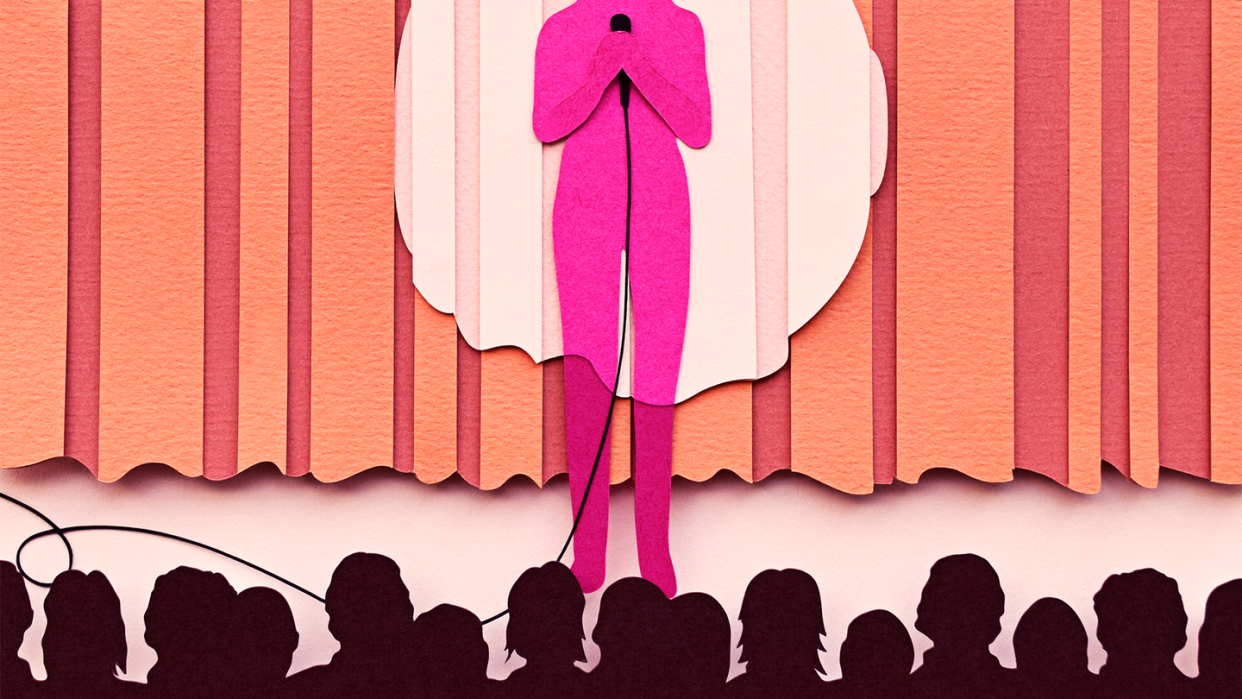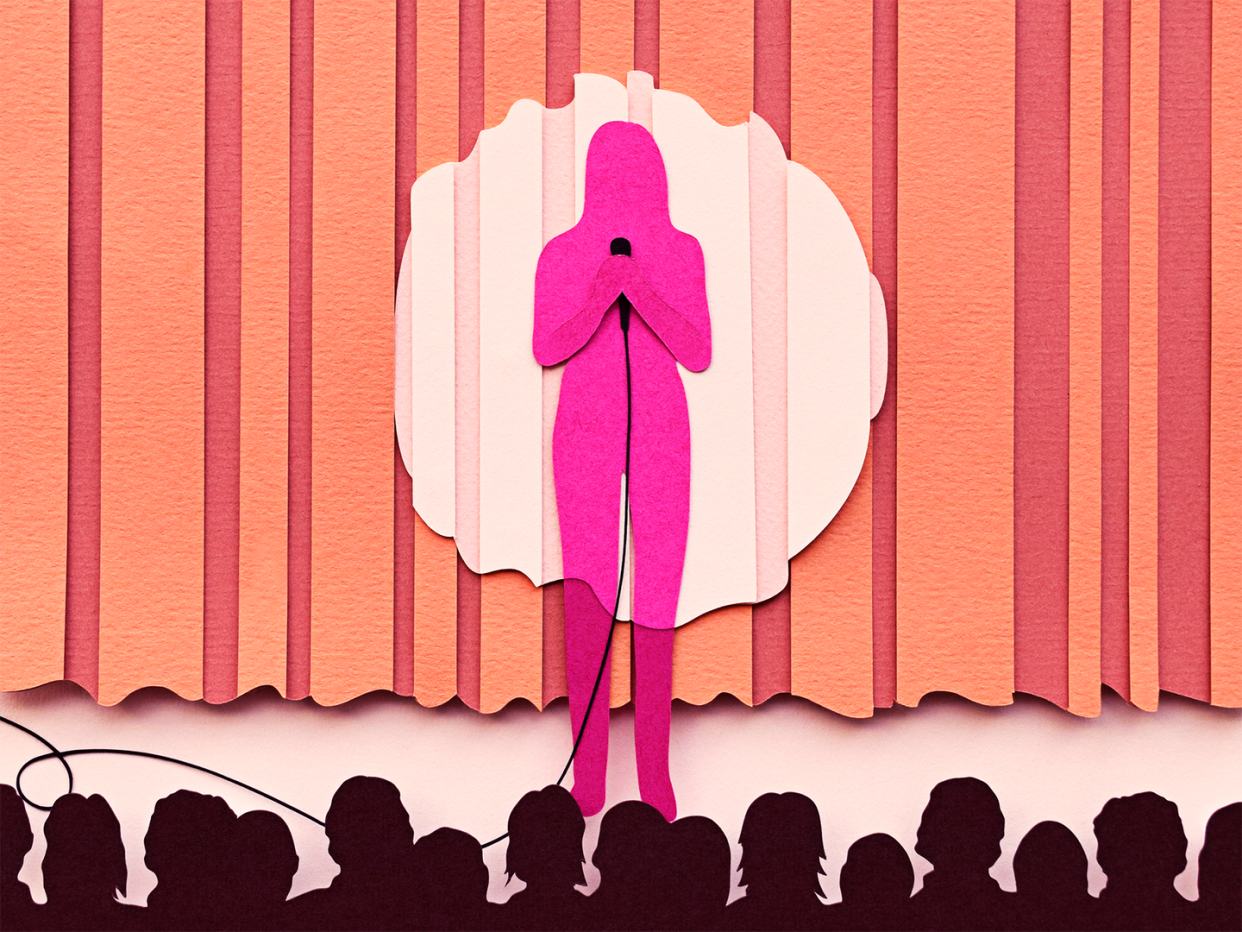Heartbroken? There’s a Support Group for That


Naz Perez had met her neighbor only a few times before she knocked on Perez’s door one day. The neighbor, visibly upset, needed someone to talk to about a recent breakup. “She knew I’d worked on The Bachelor and said she felt comfortable telling me about it rather than people she’s known her whole life,” says Perez, a former producer who’s now a TV host, film critic, and podcaster in Los Angeles.
A few months later, Perez went through her own painful split. “I experienced my first real heartbreak at 26.” She had strong feelings for someone. He did not reciprocate them; he’d cut off contact right after she met his parents. “I remember googling, ‘How can I make this feeling go away?’ I couldn’t eat, didn’t sleep, and had nightmares. I developed a rash.”
But then, Perez remembered her neighbor and realized that what she needed most was to connect with others going through crushing heartache—to have her feelings taken seriously and to commiserate rather than find a quick fix. “Our culture encourages people to cope with grief by going on a walk, meditating, or seeing a therapist,” Perez says. “I wanted to create a space where everyone felt their heartbreak was valid and equal. When I looked up the dictionary definition of heartbreak, it was ‘overwhelming distress.’ I was astounded.”
So Perez took a leap: She paid for a studio space in a defunct coffee shop near West Hollywood and, through word of mouth and ads handwritten in chalk on sidewalks, launched Heart Broken Anonymous in May 2017. She hosted free monthly meetings where people could show up, sit in a circle, and share their stories. The format for in-person sessions has remained the same ever since: Participants pass around a small beanbag as a speaking token, and can pass it along if they choose not to share. Similar to 12-step meetings, each person gets a set number of minutes to talk; interruptions are not allowed. At the end, each person says what they are grateful for that day. Members are welcome to exchange emails and stay in touch.
When the pandemic hit, the group switched to Zoom and opened up to people around the world, who now join virtually from India, Argentina, Columbia, England, Canada, and all over the United States, and who range in age from 15 to 75. “Our mission is to help as many people as possible have a safe space to share, grieve, and sit with their heartbreak rather than running away from it,” Perez says. “We acknowledge the loss of anything—whether that’s a miscarriage, loss of a home or a job, or a dream that’s unrealized.”
“I literally cried at HBA when Tom Brady left New England,” says Sara Funkhouser, who works in TV sports production and joined in 2018. “I take football way too seriously.” What initially drew Funkhouser, who is now a moderator, to the group was the range of relationships people were mourning, and the deep vulnerability they were willing to share. “We’ve talked about best-friend breakups, someone who has passed away, the loss of a pet,” she says. “I went through a loss of a dream of being a director in Los Angeles. I was heavily grieving letting go of what I thought my career was going to be.” Friendship breakups are especially tough, says Perez: “It’s usually a slow fade, and that’s painful for a lot of people.”
When Molly Codner, another member turned moderator, learned about HBA from a sidewalk ad pre-pandemic, she saw the date as a sign to attend. “It was my first love’s birthday,” she says. “He passed away unexpectedly when I was 19, and it was not something I knew how to talk about back then. I walked into a room full of strangers and shared something my best friends didn’t even know about.” In the four years since, she has opened up about all kinds of grief and been moved by surprising stories, like the time Perez talked about her first car dying and how all the memories she shared with people who once rode in it were now gone.
While HBA is not a replacement for therapy—facilitators say at the beginning of each meeting that they are not licensed therapists—Perez sees it as an affordable alternative. She asks for a minimum $10 donation to attend. “When I was 26, I wanted to go to therapy, but I’m Latina. It’s not something I grew up with in my culture,” she says. “Most sessions were $200, and I couldn’t afford $800 a month for therapy. If people can’t afford the $10 donation, we still let them in.”
For anyone who is interested in joining but nervous about talking to total strangers about deeply personal matters, Codner suggests easing in slowly. “Think about your first meeting as listening to an episode of a podcast,” she says. “You don’t have to engage beyond listening.” Funkhouser agrees: “You can leave your camera off. No one has to see you. Just feel the energy of what’s going on in the group. This space is so beautiful, and people don’t understand it until they experience it.”
It’s also a beautifully judgment-free zone. Unlike your best friend, who knows every fight you’ve had with your ex, says Funkhouser, “nobody knows your back story.” No one is rushing you to get over it; everyone is there to let whatever is stuck inside of you come out into the open. “You may not think of joining a group as an act of self-care,” Codner says. “But it is courageous to even show up and listen. It’s an act of love toward yourself.”
For more information or to join a meeting, go to Heart Broken Anonymous and subscribe to the newsletter for the schedule.
You Might Also Like
